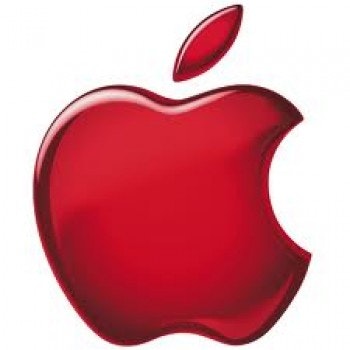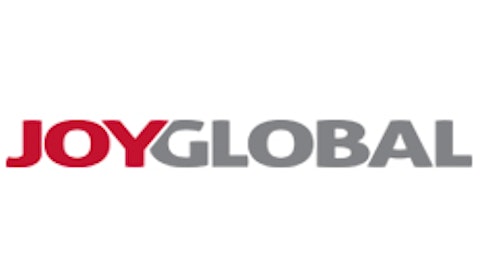Just two weeks after Michael Dell and a group of investors decided it was time to take the company private for $24.4 billion, Dell Inc. (NASDAQ:DELL) took the stage Tuesday with Q4 earnings on the agenda to show what it was made of. Amid much turmoil, the company needed to validate some recent decisions. Not the least of which was that not only was privatization the company’s best recourse long-term, but also the tendered amount was not the “low-ball” variety that many shareholders insist it is.

Here are the realities. Q4 revenue arrived at $14.3 billion, down 11% year over year. To Dell’s credit, this was enough to beat Street estimates of $14.1 billion. Likewise, the company posted net income of $530 million, or $0.30 per share. While this is down 30% year over year, when excluding charges such as acquisition costs and severance packages, earnings were actually $0.40 per share — enough to top Street estimates by $0.01.
Indeed, it now makes for a nice feel-good story that the company beat on both the top and bottom lines. But wait, we know better. At least, by now we should. Over the past couple of months, analysts have rushed to cut estimates. And management didn’t guide as if it expects this to be a sustaining trend. Besides, net income has been sliding by an annual rate of almost 30%.
The company, which relies on PC sales for 70% of its revenue, still struggles to find its footing in the wave of mobile devices. Despite Dell’s many futile attempts in mobile, shares are now trading $0.20 higher than the $13.65 buyout offer. That suggests investors still believe that things will get better, possibly even including the idea that Apple Inc. (NASDAQ:AAPL) should realize all of this hidden value and make a bid for Dell. In a recent Forbes article, which described Dell as a “second-rate International Business Machines Corp. (NYSE:IBM),” contributor Greg Satell presented the following case: “With [Dell’s] paltry R&D spending, it seems a stretch that [Dell] could match Big Blue’s efforts, or those of Google Inc (NASDAQ:GOOG) and Microsoft Corporation (NASDAQ:MSFT) for that matter, both of whom are also pursuing big data and artificial intelligence aggressively.”
First, it depends on one’s definition of the word “aggressively.” In the realm of big data, that word does not depict IBM, which has been losing market share each quarter. In fact, I’ve recently argued that one of IBM’s biggest challenges is that the company has not made enough investments in that area, which has led to three consecutive quarters of deteriorating sales, including a 5% drop in big data revenue.
Satell goes on:
Further, while Apple Inc. (NASDAQ:AAPL) can still expect 3-5 years of strong growth from its existing lines of business, the future beyond that is unclear. It could very well be that they will need to make a significant back-end acquisition to augment its legendary front-end prowess at about the same time that Dell’s bankers are looking for an exit. Stranger things have happened.
This is a very odd statement on numerous levels and assumes that Apple will remain stagnant in innovation. Plus, using the terms “back-end” and “front-end” implies an enterprise-level focus, which is absolute nonsense. Not only does it contradict the author’s original quote above suggesting Dell’s poor innovative efforts, but the argument ignores that two of Apple Inc. (NASDAQ:AAPL)’s biggest rivals are in fact Google and Microsoft — mentioned in describing Dell’s futility. So what then would Dell have that Apple would need to gain ground on two of its biggest rivals?
The argument suggests that if Apple Inc. (NASDAQ:AAPL) doesn’t buy Dell now, it certainly will in three to five years when Michael Dell and his partners are ready to be bailed out. At first, I thought the notion was ridiculous. And after I’ve had time to think, I realized I was right — the idea is absolutely insane. The very notion itself undermines Apple CEO Tim Cook, who, while speaking at the Goldman Sachs Group, Inc. (NYSE:GS) Technology and Internet conference last week, declared twice that Apple is “not a hardware company.” This quote is consistent with the ideas of former CEO Steve Jobs, who described Apple’s products by calling them, “beautiful software wrapped in a beautiful box.” So why then, would Apple find any interest in Dell?
And the author was wrong on another thing — no, stranger things have never happened.
The article Apple to Buy Dell? Have Stranger Things Really Happened? originally appeared on Fool.com and is written by Richard Saintvilus.
Fool contributor Richard Saintvilus owns shares of Apple. The Motley Fool recommends Apple, Goldman Sachs, and Google. The Motley Fool owns shares of Apple, Google, International Business (NYSE:IBM) Machines, and Microsoft.
Copyright © 1995 – 2013 The Motley Fool, LLC. All rights reserved. The Motley Fool has a disclosure policy.





